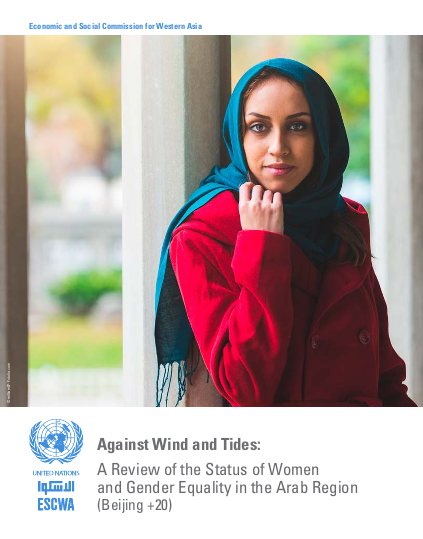20 Years after the Adoption of the Beijing Declaration and Platform for Action

This study was undertaken by the Center for Women (ECW) at the United Nations Economic and Social Commission for Western Asia (ESCWA), in the context of a regional programme to review progress made in the implementation of the Beijing Declaration and Platform of Action in the Arab region. Adopted by consensus in 1995 following the mobilization of over 40,000 government delegates, experts and civil society representatives at the Fourth World Conference on Women, the Beijing Platform embodies the commitment of the international community to achieve gender equality and to provide better opportunities for women and girls. For Arab countries, the twentieth-anniversary review of the implementation of the Beijing Platform comes at a time when the region stands at a major crossroads in the context of recent uprisings, political instability and protracted armed conflicts. Some remarkable progress has taken place in relation to the rights of women and girls, and overall, gender issues have gained significant momentum since 1995. Nonetheless, these positive developments sharply contrast with a reality in which discrimination against women and girls persists at all levels of society, and is often institutionalized by law. Newly established measures have not yet yielded a meaningful increase in women’s access to economic and financial resources and participation in decision-making. In many countries of the region, legal and institutional safeguards to protect women and girls from abuse have yet to materialize. This study uses detailed and current data to highlight the many developments that have taken place in recent years in relation to gender equality and the empowerment of women in the Arab region.The study also examines major remaining obstacles, persistent elements of discrimination, and the unprecedented challenges that the region is currently facing due to conflicts and their impact on women’s rights, safety, and conditions.